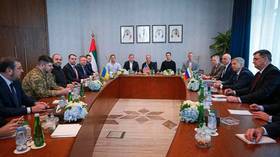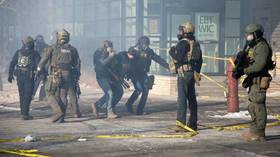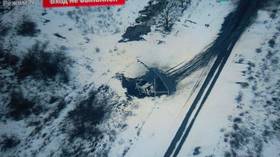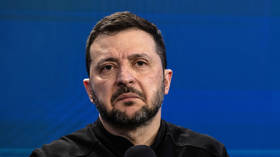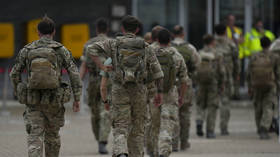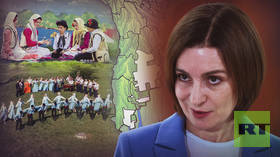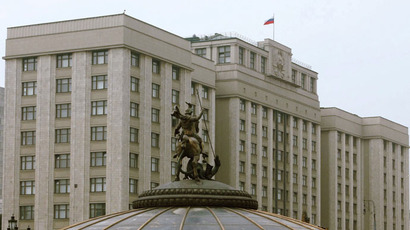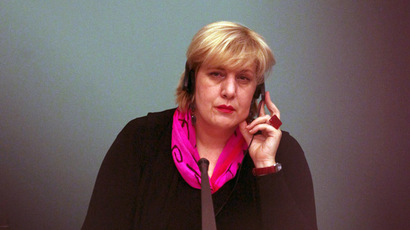TV channel under fire for online poll on legendary Leningrad siege
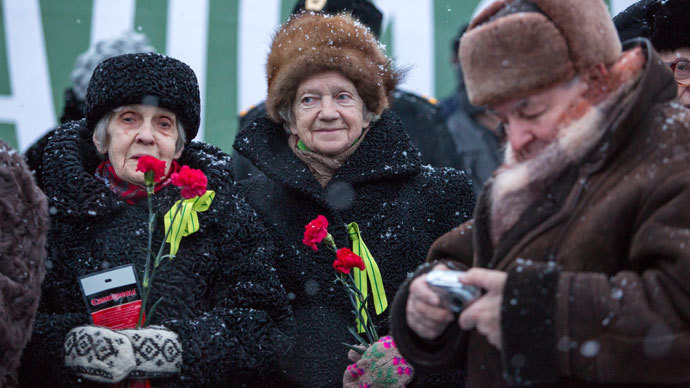
A group of Duma MPs have called for a prosecutors’ probe and legislative limitation after a news channel positioned as ‘opposition’ asked its audience if Leningrad should have been surrendered to the Nazis during World War II.
The parliamentarians want the Prosecutor General’s Office to give an assessment of the moral and ethical side of the recent move by the independent TV channel Dozhd (Rain).
As the country celebrated the 70th anniversary of lifting the Nazi Blockade of Leningrad (now St. Petersburg), Dozhd, always posing as opposition-leaning and critical of the authorities, posted a poll on its website asking if the audience considered it reasonable to surrender the city to the Nazis in order to save thousands of lives.
This approach immediately caused outrage on social networks and in the mass media. That reaction prompted Dozhd to apologize and have the controversial poll removed from its site, however it was too late.
Internet users continued to decry the channel for insulting the heroic history of what is termed the Great Patriotic War, and at some point a man dressed in Soviet Army uniform raised a copy of the ‘Victory Banner’ – the red flag that was put on the Reichstag in 1945 – over the Dozhd office complex.

Politicians of all inclinations condemned Dozhd and its provocative move in statements.
MP Irina Yarovaya of centrist conservative parliamentary majority United Russia said the poll was in fact an attempt to rehabilitate Nazism.
“These things all look equally disgusting – the parades of Ukrainian neo-Nazis, the demolition of monuments to war heroes and the sly, fake and counterfeit polls,” Yarovaya told Itar-Tass. “And every time the same thing is behind these actions – the justification of Nazi crimes and the desecration of the historical memory.”
Army general, and the head of the Russian Veterans’ Union, MP Mikhail Moiseyev (United Russia) called the poll an insult to history and the betrayal of the people, and on behalf of all veterans demanded official apologies from the channel.
Another veteran, President of the Academy of Military Sciences Makhmut Gareyev, noted that the creators of the poll showed their ignorance of history, as the described choice never existed – Hitler ordered his troops to completely destroy Moscow and Leningrad and eliminate the populations of these cities.
“If Leningrad was handed over everyone would have been killed. In reality at least some of the residents survived,” the historian noted.
MP Leonid Levin of the center-left Fair Russia party said the memory of the war is one of those things where questioning is impossible.

“The victory, the country’s sovereignty, charity and religion – the nation must be united over these topics or it cannot be called a nation,” the politician noted. Levin said that the existence of such polls questions the moral and ethical competence of the Dozhd editors and managers, and urged the Russian Journalists’ Union to intervene.
Deputy head of the Russian Communist Party, Ivan Melnikov, called the channel’s attitude “absolutely shameless” and “an attempt to lift the taboos imposed at the Nurembergtrial.” He also noted that the authors of the poll did not understand that the heroism of the defenders of Leningrad did not contradict the abstract humanism, but was instead a manifestation of absolute humanism.
The high-level reaction prompted Dozhd journalists to take further steps to restore their image. The channel’s Chief Editor Mikhail Zygar issued a special address to viewers in which he said that he and all his colleagues have always condemned Nazism and opposed attempts to justify it.
He added that the wave of negative statements and reports was caused by a “political order,” for which he indirectly blamed the United Russia party.
Apart from many heated comments, the MPs also urged legislative action. In the same address in which Communists asked the prosecutors to establish the “authors and initiators” of the controversial poll, they also sought to revive the bill on criminal responsibility for the rehabilitation of Nazism.
Two different drafts of the document were prepared and submitted to the lower house in 2013, but put on hold after being rejected by the government. The critics said that the definitions used in the bill were too vague and some of its provisions duplicated existing articles of the criminal and administrative codes.



